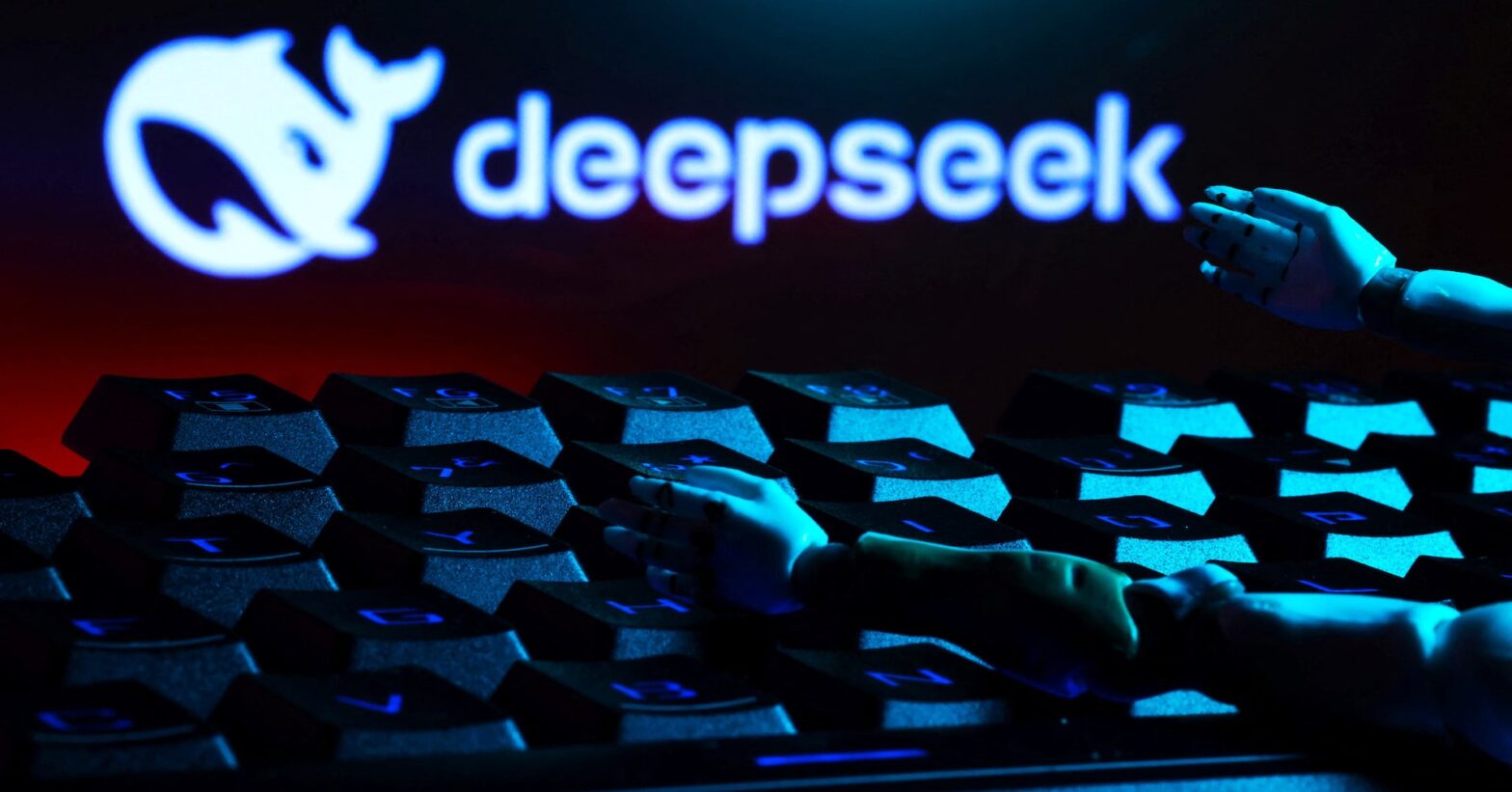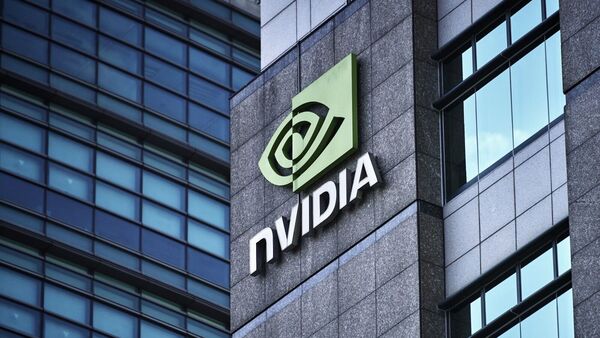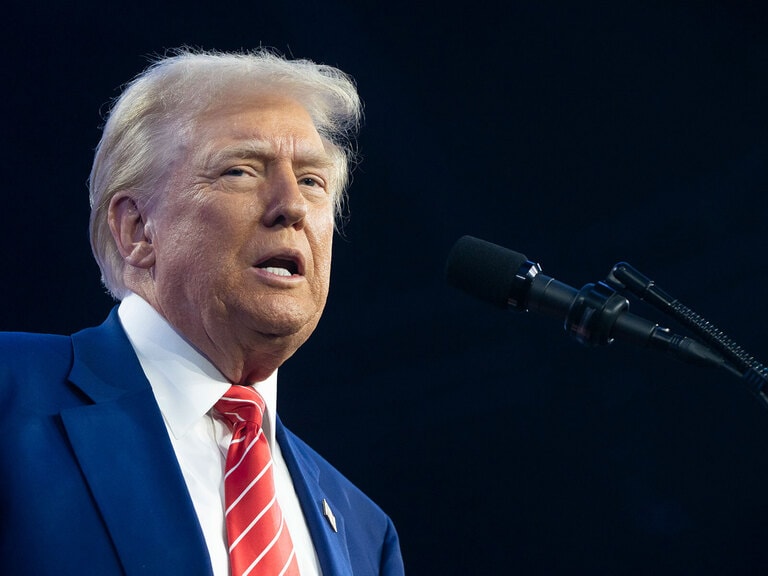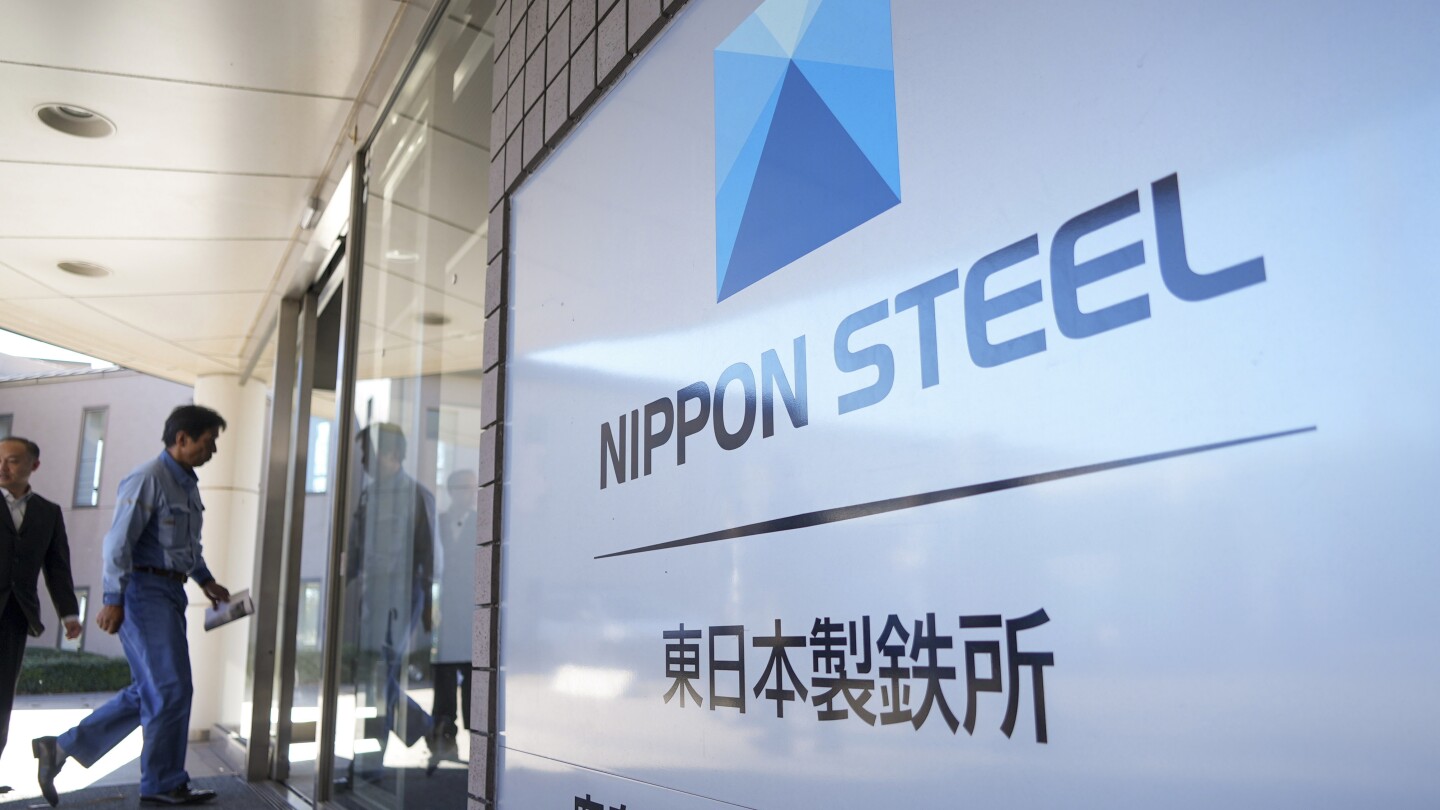- China’s DeepSeek AI assistant surges in popularity
- Europe, Japan tech shares fall again
- Investors ponder AI race between China, U.S.
- Nvidia shares sink 17%, wiping $593 bln off market value
- Japanese technology shares slide for second day
LONDON/SINGAPORE, Jan 28 (Reuters) – Global technology shares sank on Tuesday, as a market rout sparked by the emergence of a low-cost Chinese artificial intelligence model entered its second day, making investors question the sky-high valuation and dominance of AI bellwethers.
Shares of Nvidia
, a leader in the AI chip market, fell 17% on Monday, wiping $593 billion from its market value – a record one-day loss for any company – and dragged U.S. stocks lower.
By Tuesday, Nvidia shares were up nearly 6% in Frankfurt, while those in Oracle
rose 3.4% and AI data analytics company Palantir
rose 2.97%, while tech shares in Europe wilted.
The sell-off was prompted by the release of a free AI assistant launched by China’s DeepSeek last week that the startup said uses less data at a fraction of the cost of services currently available. That garnered attention worldwide, although scepticism over DeepSeek’s cost claims lingers.
OpenAI CEO Sam Altman called it an “impressive model”, while U.S. President Donald Trump called it “a wakeup call for our industries.”
“We will obviously deliver much better models and also it’s legit invigorating to have a new competitor!” Altman, the head of the AI firm behind ChatGPT,
in a social media post.
DeepSeek bursting onto the AI scene, seemingly out of nowhere, has upended the industry’s perception that China was years behind its bigger U.S. rivals.
Investors have dumped tech stocks everywhere, with ripples felt from Tokyo to Amsterdam to Silicon Valley.
Some of Japan’s biggest tech companies came under pressure for a second day. Chip-testing equipment maker Advantest
, a supplier to Nvidia, lost 10% to add to Monday’s 9% drop, while tech start-up investor SoftBank Group
slid 5%.
“It’s clearly a sell first, ask questions later approach, and we’ve actually seen that kind of move in the past in Japan,” said Kei Okamura, a portfolio manager at Neuberger Berman, referring to a global market meltdown in August headlined by Japan’s Nikkei.
In Europe on Tuesday, shares in Dutch semiconductor company ASML
, which ended down 7.1% on Monday, fell 1%, reversing a tentative early rally, while shares in Schneider Electric
, ASM International
fell 1.2-4.7%.
In the U.S., Broadcom
fell 17.4% on Monday, while ChatGPT backer Microsoft
fell 2.1% and Google parent Alphabet
closed down 4.2%. The Philadelphia semiconductor index
tumbled 9.2% – its deepest percentage drop since March 2020.
NO MARGIN OF ERROR
The selloff has brought into the spotlight the crowded positioning among investors and the billions of dollars U.S. tech giants are spending to develop AI capabilities, as well how expensive some of these companies’ shares are relative to the broader market.
Prior to Monday’s sell-off, Nvidia’s shares were trading at nearly 60 times the value of its earnings, compared with 22 for the entire S&P 500, according to LSEG data.
“What makes Monday’s tech sell-off so jarring is that the valuations of many of these AI and tech companies offer no margin of error,” said David Bahnsen, chief investment officer at The Bahnsen Group.
“The excessive weighting these tech stocks have in many investor portfolios and the high concentration these tech stocks have in the market indices was a significant and under-appreciated risk issue.”
The hype around AI has powered a huge flow of capital into equities, inflating valuations and lifting stock markets to record highs, leading to an increase of around $10 trillion in the market value of “Magnificent Seven” companies since ChatGPT kicked off the AI boom in November 2022.
ENTER THE ROBOTS
Investors have also borrowed massively to buy these pricey tech stocks. Monday’s selloff likely forced a lot of selling of other assets to cover any losses and, with far more algorithmic trading models active in the market, those moves would have been exacerbated, according to Rob Almeida, global investment strategist and portfolio manager at MFS International.
“When you get days like this, behind the scenes, what might be exacerbating it is leverage that might be being unwound and isn’t being accounted for,” he said.
“So you combine all of these things, companies over-earning, maybe the AI supply chain being too full, valuations really expensive, huge leverage built up in the system and too many robots selling at the same time, and it all becomes obvious after the fact.”
A number of Big Tech companies, including Apple and Microsoft, report earnings this week and executives will be keen to assuage concerns about capital spending.
Sign up here.
Reporting by Ankur Banerjee and Rae Wee in Singapore; Additional reporting by Kantaro Komiya in Tokyo and Amanda Cooper and Dhara Ranasinghe in London; Editing by Christopher Cushing and Louise Heavens
Our Standards: The Thomson Reuters Trust Principles., opens new tab

















